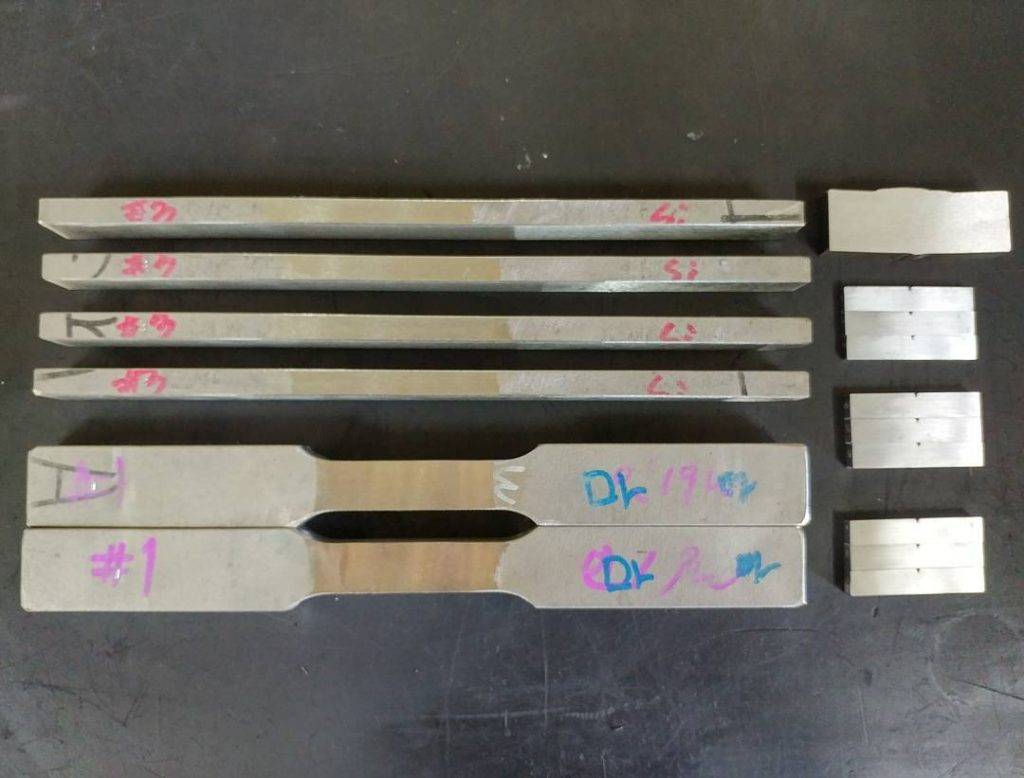A Welding Procedure Specification (WPS) is a document that describes how welding is to be carried out in production.
Its purpose is to aid the planning and quality control of the welding operation. They are recommended for all welding operations and most application codes and standards make them mandatory.
Objective of a welding procedure test
To give maximum confidence that the welds mechanical and metallurgical properties meet the requirements of the applicable code/specification. Each welding procedure will show a range to which the procedure is approved (extent of approval). If a customer queries the approval, evidence can be supplied to prove its validity
- GQC provides WPS & PQR to major international standards or codes including and not limited to
- ASME SEC IX: ASME Boiler and Pressure Vessel Code
- AWS D1.1: Structural Welding Code – Steel
- AWS D1.2: Structural Welding Code – Aluminum
- AWS D1.3: Structural Welding Code – Sheet Metal
- API 1104: Welding of Pipelines and Related Facilities
A Welding Procedure Specification (WPS) is a formal written document describing welding procedures, which provides direction to the welder or welding operators for making sound and quality production welds as per the code requirements. The purpose of the document is to guide welders to the accepted procedures so that repeatable and trusted welding techniques are used. A WPS is developed for each material alloy and for each welding type used. Specific codes and/or engineering societies are often the driving force behind the development of a company’s WPS. A WPS is supported by a Procedure Qualification Record (PQR or WPQR). A PQR is a record of a test weld performed and tested (more rigorously) to ensure that the procedure will produce a good weld. Individual welders are certified with a qualification test documented in a Welder Qualification Test Record (WQTR) that shows they have the understanding and demonstrated ability to work within the specified WPS.
GQC has over two decades of serving the customers through technical assistance, training and certification of their inspection personnel, Testing of welders to International standards, codes and specifications etc. Our team on technical services, Welding Inspection and welding consulting services comprises of Welding experts with decades of welding related experience with leading welding and fabrication companies. Our welding inspectors are certified to American Welding Society AWS-Certified Welding Inspectors, CSWIP and other internationally recognized personnel certifications. The panel of experts at GQC can work together with clients and their counterparts for specific requirements to establish welding procedure specifications and supporting procedure qualification records.
Advantages of Outsourcing your us:
Vast Experience in establishing WPS to all major international standards or codes
Facility to outsource necessary tests to GQC while establishing WPS
Delivery of Test Results in Record time
Economical and affordable services
Wide spectrum of welding expertise working with combination of materials for modern applications
Consulting services to improve quality of welding on shop floors
Establishing right welding procedure involves:
- Planning the welding tasks effectively
- Collecting the data pertaining quality requirements
- Writing a Welding procedure for use of for trial
- Making a test weld under the supervision of welding inspector
- Evaluating the results
- Approving the procedure for welding
- Preparing the documentation as per specification or code
After the testing is completed and all the relevant results collated, the results need to be assessed in accordance with the relevant code/standard. The results are then generally recorded
PWPS: Preliminary Welding Procedure Specification (Before procedure approval)
WPS: Welding Procedure Specification (After procedure approval)
WPAR (WPQR): Welding Procedure Approval Record (Welding procedure test record)
